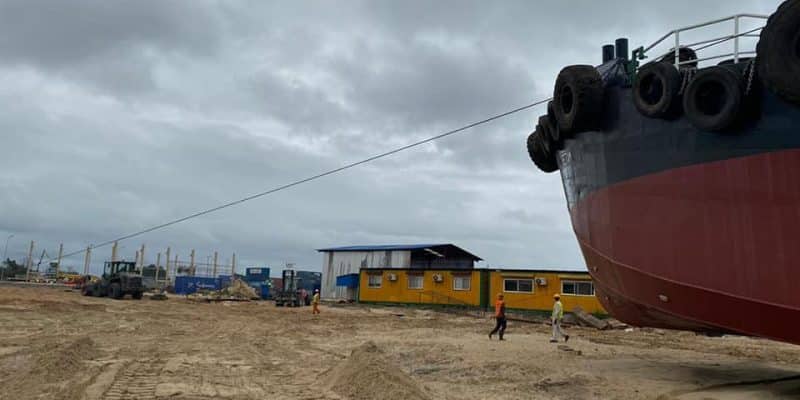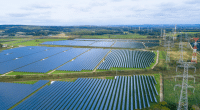Owendo Mineral Port (OMP) is committed to a low-emission economy. A 1.56 MWp solar system will soon be installed on the port's premises, located 21 kilometers from Gabon's capital, Libreville. The project is financed by British International Investment (BII), a British financial institution.
Owendo Mineral Port (OMP), a public-private joint venture between Arise Ports & Logistics, Meridiam and the Gabonese government, is in the process of solarizing its facilities. A 1.56 MWp solar panel system and a 1 MW battery electricity storage system will soon be installed, mainly on the roofs of 6 workshops, within the port platform located 21 kilometers from Gabon’s capital, Libreville. The project’s environmental benefits include a reduction in CO2 emissions, estimated at over 1,700 tonnes per year, and optimization of the port’s operating costs.
The $2.6 million project will be financed under the partnership agreement that OMP has just signed with British International Investment (BII), the UK’s development finance institution. “We are delighted to have identified this value-added opportunity with OMP to help address climate challenges. This is in line with BII’s ambition to achieve a net zero portfolio by 2050, and to support the decarbonization efforts of our portfolio companies,” explains Geoffrey Manley, Director and Head of Energy Access and Efficiency at BII.
The BII’s financing is linked to an energy audit. According to the investment company, the Owendo mineral port’s electricity demand is around 7,730 MWh, which suggests that much remains to be done to achieve full solarization of OMP’s electricity needs. Moreover, as part of its sustainable development strategy, the port intends to electrify its mechanical equipment and transport vehicles.
Read also-GABON: 4 banks disburse €123m for the Kinguélé Aval hydroelectric dam
OMP’s move towards a low-CO2 economy is part of a national vision. In its project to build hybrid solar power plants, Gabon intends to reduce its carbon emissions in order to achieve annual carbon savings of around 3,000 tonnes of CO2. For Gabon’s Caisse de Dépôts et de Consignations (CDC), this performance should contribute to the achievement of public energy policy objectives of a total installed capacity of 1,200 MW, with 80% in renewable energies (hydraulic and solar) and 20% in thermal energies, mainly gas, by 2025.
Boris Ngounou





